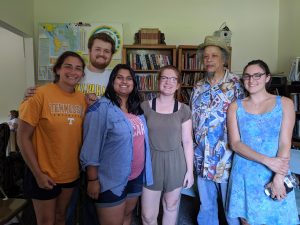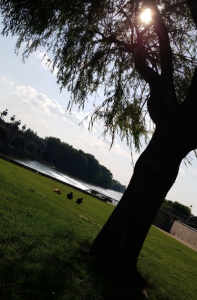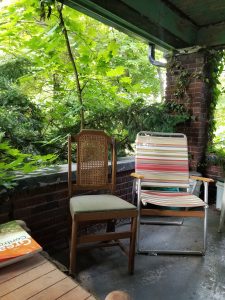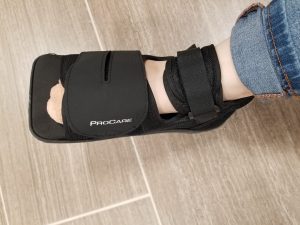The process of a fresh and clearly set start can be paralyzing. The CAPS Fellowship is no exception as I, among many other fellows, attempt to settle into our respective placements and make an unique impact. A quote from Buddha tells us “There are two mistakes one can make along the road to truth… not going all the way, and not starting.” My main worry when beginning my fellowship was being unable to get out of my shell as a person. Being viewed as somebody who is untrustworthy or incompetent for my inability to get comfortable within my space felt like my greatest fear. While starting well may be difficult for myself personally, along with many others, I am proud to state that I have been doing well to show my full self to Kheprw throughout my first two weeks.
For a short synopsis, I spent my first week bouncing between many meetings, exchanging names with individuals from varying committees within Kheprw. My coworkers at Kheprw were extremely welcoming and excited to pause their busy schedules to explain the important role of their various committees. Along with, multiple check-in meetings with mentors who constantly asked me about where my current wants, passions, and needs are for my fellowship. Their impact on my confidence and attitude towards my current objectives can’t be understated. Currently, I have been assigned about three personal projects which encompass three committees within Kheprw while still being allowed to join any meeting to satiate my own curiosity. Even though my work on these projects has been short, I can already see the different ways of thinking which will be demanded of me and how differently I will have to act in comparison to any classroom setting.
One aspect of the CAPS Fellowship I have appreciated within my own viewpoint of reflection is the opportunity to meet many great wells of wisdom to draw upon. At the beginning of my time with Kheprw, I was told, in my own rough paraphrase, that I would need to be prepared to clash with big voices and have my ideas challenged within the Kheprw space. I didn’t realize just how much I would enjoy that previously described environment. Within my check-in meetings, I am not only forced to think in a much less concrete, cookie-cutter way about achieving my goals; but also, what I want to accomplish and how I should accomplish my goal. At first, it felt difficult to work on finding my passions or solutions to questions within Kheprw with little specific information. However, upon reflection, I realized two essential points: this isn’t a classroom, so I can’t ask for a syllabus and there is no right answer to the questions I am being posed. It felt paralyzing when asked open-ended questions about “what I had noticed within Kheprw’s different spaces” until I realized that my input was perceived as equally valuable in comparison to others’ in my mentor’s point of view. I realized, in relation to my own purpose, that these people had gotten to where they are because of their humbleness. Amidst their own success, their ability to treat everyone they meet like an expert in “something” was admirable. Being relied upon and viewed as a trustworthy coworker has done wonders for my own personal confidence and passion for the projects I have undergone.
From looking back on my past two weeks, I was reminded of a quote from Henry Thoreau “The mass of people live lives of quiet desperation.” I realized that despite my shortcomings or personal doubts, the last quality I want to be attached to me is “quiet” and I will not be afraid to leap before I look. I look forward to the rest of my time with Kheprw and wish my “fellow” CAPS Fellows all the best on their own unique paths in their placements.
Sincerely,
Michael Olson




